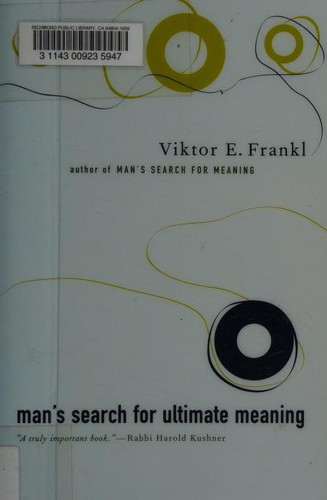
Man’s Search For Meaning
By Viktor Frankl
We needed to stop asking about the meaning of life, and instead to think of ourselves as those who were being questioned by life
A Holocaust survivor describes the mental hoops he (and many) prisoners jumped through during their trying time so close to death. He concludes that people needed a reason to live, a “will to meaning,” as a necessary core of their psychological health, without which survival was impossible.
In America, the book became wildly popular for its descriptions of life in the German concentration camps and for its feel-good defense of positive thinking and a generic, rationalized, Judeo-Christian spirituality. Personally, I read Frankl’s anecdotes more as a defense of ethical behavior in the face of death less than as a defense of the imagination and its attachments as he imaged. As he himself points out: those survivors most strongly attached to hope where those most strongly disillusioned by their return.
Frankl’s Judeo-Christian lens also prohibited him from engaging in more sober self-analysis in ways that are worth unpacking for what they say about Western culture more broadly. For example, it’s more than a little problematic that Frankl approvingly (!) quotes Nietzsche.
In the final analysis, Man’s Search for Meaning remains a complex classic, as much in need of psychoanalysis as it purports to contain it.